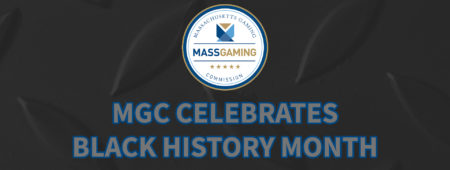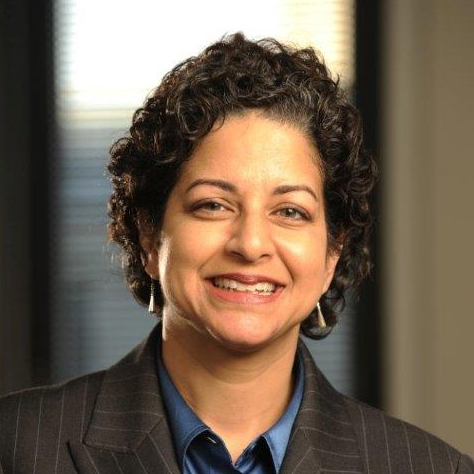A Q&A with Jill Griffin, the MGC’s Director of Workforce, Supplier and Diversity Development
- February 18, 2020
- by MGC Communications
- 0 comments

Q) Tell us about your career. What was your career path before joining the Massachusetts Gaming Commission?
A) Before joining the MGC, I served as Senior Director of Programs at The Boston Foundation. I led competitive grant-making and special initiatives focused on workforce and economic development. In this role, I was co-chair of SkillWorks, a $20 million, multi-year initiative to improve workforce development across the state by bringing together employers, philanthropists, government, and community organizations to address the goals of helping low-income individuals attain family-supporting jobs and businesses finding skilled workers.
As Assistant Director for Economic Initiatives at the Boston Redevelopment Authority, I developed and executed initiatives related to retention and attraction of businesses to Boston; primarily industrial, commercial, retail, creative and life sciences sectors. At the City of Boston’s Department of Neighborhood Development, I managed technical and financial resources for 15 neighborhood shopping districts offering promotions and marketing, gap analysis, and façade improvement programs.
I also served for several years as a Special Assistant to Mayor Thomas M. Menino, during which I directed the Mayor’s Office of Scheduling and Advance Department. Working for Mayor Menino was one of my favorite and rewarding roles due in large part to the huge personality and incredible drive of my boss. I learned about each neighborhood in Boston and met community leaders who worked hard to improve their community.
I started my early career at Northeastern University, managing a co-op program in the College of Business.
I enjoyed counseling students regarding their careers as well as meeting with businesses regarding participation in the program.
Q) Why did you choose to work for the Massachusetts Gaming Commission?
A) My entire career has been focused on job creation and helping to open the door to economic opportunity for individuals through education and workforce training. I saw that the Commission was serious about implementing the gaming law’s focus on diversity and inclusion. I was excited about the opportunity to implement a program in an entirely new industry in Massachusetts.
Q) What does it take to implement a new law and introduce a new industry, while prioritizing a mandate for diversity and inclusion?
A) Certainly, the ability to juggle multiple priorities has been important. I’ve heard early Commission folks describe it as “building the plane as you are flying it.” This seems apt.
Also, given the early resources, it was vital that I establish partnerships within state government and in the community.
Q) What accomplishments are you most proud of since joining the Massachusetts Gaming Commission?
A) I’m proud of the transparent process that we implemented to monitor and offer support to the casinos during construction. We held monthly meetings –open to the public—where we reviewed detailed reports on how each contractor and union were meeting the diversity goals. I am also proud of the partnerships we developed with unions, community groups, chambers and the casinos. We invited all of these groups to attend the monthly Access and Opportunity Meetings to remain informed about the construction progress, offer feedback and bring information back to other stakeholders.
I am also proud of the diversity results during the construction of the casinos offering women, people of color, and veterans new economic opportunities. The casinos exceeded most of their workforce and vendor diversity goals when there was early skepticism and a belief that this would not happen. In fact, Encore Boston Harbor had more tradeswomen (nearly 500) constructing their casino than the number of women who worked on the decadelong Big Dig project. This wasn’t easy and was due to determination and hard work from the casino’s team, the AOC and others.
Q) What advice do you have for other government entities and developers seeking to achieve a diverse and inclusive development?
A) Measure, report publically, hold people accountable, and expect great results. For people who want more details, we have published a best practices guide, Best Practices for Diversity in the Construction Industry, The Massachusetts Casino Experience.
Q) Now that the casino construction phase is complete, how will the Commission ensure a diverse operational workforce and supplier base?
A) All casinos will continue to report publically on a quarterly basis at MGC meetings on their progress in meeting and exceeding diversity goals. We have supplemented the casino efforts by ensuring we have a local, qualified workforce through funding workforce training programs to prepare individuals for careers in hospitality, culinary and as dealers.
Q) What’s the most rewarding aspect of your job thus far?
A) I love visiting the casinos and seeing the impact of the workforce efforts. My focus is not on table games or slots, but instead on the diverse and local workforce who have entered new careers as a result of casino development. I love speaking to employees who live nearby the casino and are excited about their new opportunities.
Q) Tell us something folks might not know about you.
A) Some people know that I am an identical twin. I don’t think I’ve shared with many that I spent my childhood in Mandeville, Jamaica or that I have a Master’s Degree in Counseling.
Q) What do you like to do when you’re not at the MGC.
A) I love winter sports. You can either find me at an ice rink or spending the day skiing.
